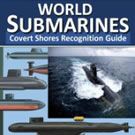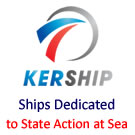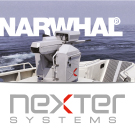 FTI representation used during a recent presentation by the French MoD. Picture via Emmanuel Gaudez's twitter account |
|||
FTI:
What we know for sure: Five new FTI Frigates are set to be delivered to the French Navy (Marine Nationale) starting in 2023. They will be "first rank frigates" capable of ASuW, AAW and ASW. The class will displace approximately 4,000 tons. FTI are intended to eventually replace the Lafayette-class frigates. They will be fitted with the Sea Fire multifunction fixed-array radar designed by Thales and the French defence procurement agency (DGA). Finally, the design was driven as much by the French Navy as by export requirements. In May 2015, French Defense Minister Jean-Yves Le Drian declared "In order to take into account the updated FREMM delivery schedule I just mentioned, I decided to accelerate the FTI program by nearly two years. The launch of this program will allow a first delivery from 2023, in line with the FREMM production in Lorient. [...] I would like to stress here the decision taken on FTI frigates. Beyond the major challenge for our Navy, FTI is also all about good industrial policy choices. The analysis led by the DGA (ed.note: French procurement agency) in collaboration with DCNS and its partner Thales, has indeed demonstrated the need for a strengthening of a French offer for export, which is complementary to the FREMM product. The challenge is also to differentiate us on a technological level ten years from today from the global competition concentrated in the segment of mid-size frigates with the launch of similar projects in Spain, Italy and Germany among others. In this double perspective, operational and industrial, the anticipated launch of the FTI midsize frigate program will allow to match the format set by the White Paper on defense, giving DCNS and all subcontractors a significant visibility in their load plans (both in engineering and in production). It will also provide the FREMM a complementary product enabling DCNS to expand its export competitiveness.". A DCNS press release from May 2015 provides more details on the FTI: The new frigate, developed and built by DCNS, will be a front line warship. This frigate will have the advantages of a modular, robust, easy to use and has an unrivaled operational capability on the market. Adapted to the needs of the French Navy and the navies of many countries, the new DCNS frigate benefit from the most advanced technology solutions, including planar array radar. |
|||
 Laurent Sellier, Head of Naval Programmes at the DGA, presenting (in brief) the FTI Frigate programme during the Euronaval press conference on September 19, 2016. |
|||
FTI:
What we (may) learn at Euronaval A scale model dubbed "DCNS 4,000 tons Frigate" will be showcased on the large DCNS booth. Another model "may" be displayed on the French Ministry of Defense booth. The DGA and DCNS are hopefull that the decisions on some of the main systems for the class will be taken by Euronaval. But it is not sure yet that these important decision will be made before the exhibition (which would have an impact of the scale model(s) on display). Sensors Talking to Navy Recognition during the Euronaval press conference last week, Laurent Sellier, the DGA head of naval weapon systems told us that the definition phase should be over by the first half of 2017. Asked about the sensor suite, he explained that there was a choice to be made between: "A very silent hull with a small towed sonar" or "A slightly less silent hull with a larger towed sonar". He added: "at this stage we are leaning towards the second option". In addition, we learned from Thales that a new sonar system is being developed, potentially for the FTI. Details on this new sonar will be revealed during Euronaval. The vessel will be fitted with a hull mounted sonar as well. Also from Thales, we learned that the first Sea Fire radar test module is already built at the Thales site of Limours (keep in mind that one panel if composed of several modules and an FTI will be fitted with 4 panels). Two full Sea Fire panels are set to be delivered to the Shore Integration Facility in Saint Mandrier (near Toulon, Southern France) in early 2018. We were told that detection range of the Sea Fire radar as fitted on an FTI would be roughly 500 Km. Weapons As far as naval gun systems are concerned: We were assured by both the DGA and DCNS that no choice has been made yet by the French Navy (as of last week anyways) but the class would be able to accommodate 76mm and 127mm, Italian and American systems... including for future export sales. As far as missiles are concerned, we were told by MBDA representatives that the FTI would be able to deploy Aster 15 and 30 surface to air missiles with provisions of Naval Cruise Missile capability for export FTIs. We asked if Aster 15 had any technical advantages over Aster 30: We were told that Aster 15 has a shorter minimum engagement range. The FTI should be fitted with Exocet MM40 Blk III anti-ship missiles for ASuW and MU90 torpedo launchers for ASW. As a continuation of the decoy systems fitted aboard the FREMM, Horizon-class, Cassard-class or Lafayette-class, the FTI will likely be protected by decoys from the SEACLAD family by Lacroix. These decoys would be deployed by the NGDS system by Sagem and/or the SYLENA by Lacroix (possibly in its flush deck/stealthy variant). Combat System and data center During the press tour, DCNS unveiled two innovations that may find their way aboard the FTI: The first one is called "Setis Innovation". A brand new combat management system (CMS) designed to facilitate the work of the operators with a new, very intuitive, man-machine interface and tactical screen with touch-screen technology similar in a way to the one used in smart-phones nowadays. A simulated engagement was demonstrated to us in which a BAE System Mark 45 5 Inch (127mm) naval gun system was used to conduct a fire support mission against land targets, with live video feed from a UAV. (As far as we are concerned, it was the very first time we were seeing a BAE Systems gun represented on a DCNS vessel). Another innovation that is being proposed for the FTI is the ACCESS concept (standing for Afloat Common Computing Evolutive & Secure System). It consists in replacing all computer systems aboard a vessel with a few a single data center (that can be split in several locations). The advantage is reduced power consumption, better cost control, better reliability, simplified operation and significant gains in volume (foot print) and weight. As we said, a lot of unknowns still remain and not much is "set in stone" yet, but count on us to bring you the latest on the FTI during Euronaval. It will no doubt be one of the "stars of the show" this year (as were the DCNS XWind 4000 and CMN CSword 90 two years ago... by far our most read articles of Euronaval 2012). |
|||
FTI Mid-Size Frigates: Latest Rumors Until the Design is Revealed at Euronaval
- Posted On










